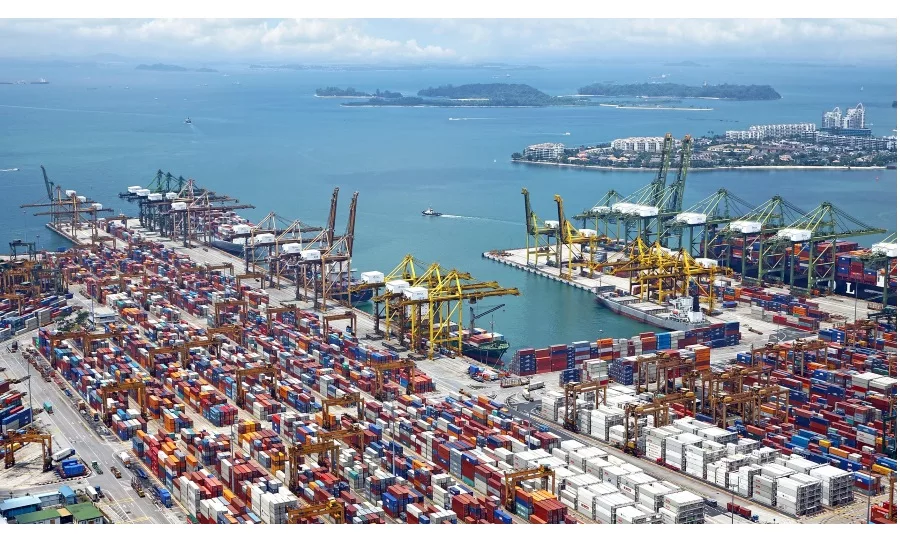U.S. ports request $3.5 billion in COVID-19 relief funds

In a joint plea to Congressional leadership and Treasury Secretary Steven Munchin this week, the American Association of Port Authorities (AAPA) — the unified and collective voice of America’s seaports — and a host of other maritime transportation entities, asked that $3.5 billion in COVID-19 relief funding be made available for the U.S. maritime transportation sector, citing “significant hardships” and “unique and unexpected challenges” posed by the COVID-19 pandemic.
The letters ask Congress and the Administration to take immediate action to provide the whole of the maritime transportation system with the resources necessary to combat the virus and ensure the safety and security of the industry’s sizable workforce. According to the AAPA, more than 650,000 port workers are on the “COVID frontlines.”
“America’s maritime transportation system, including its ports and their direct workforce, have kept essential goods moving to medical professionals, first responders and vital manufacturing, distribution and retail businesses during the pandemic,” said AAPA President and CEO Christopher J. Connor. “Their dedication and perseverance has enabled commerce to continue flowing during a time of great risk, upheaval, stress and greatly increased costs, allowing millions of Americans to safely and comfortably work from home.
Connor noted that while recent news reports show a resurgence of trade at some of country’s largest container ports, “the truth is that most ports are still suffering financially, particularly those that handle non-containerized goods, like steel, grain and other bulk commodities. Even most container ports have large business portfolios that include handling critical, but poorer performing commodities that put a financial drag on their ability to pay the added costs of protecting their workers.”
For the first 10 months of 2020 compared to the same time frame last year, the cruise industry has come to a standstill while the value of waterborne commerce through America’s ports plummeted $200 billion, or nearly 14%, according to U.S. Census Bureau statistics.
“The relief we’re seeking is about ensuring ports and other maritime transportation businesses are able to keep pace with the accelerating costs of protecting their workers while keeping their workforce employed, and maintaining a state of readiness so they can significantly aid in the nation’s eventual economic recovery,” said Connor.
Looking for a reprint of this article?
From high-res PDFs to custom plaques, order your copy today!





